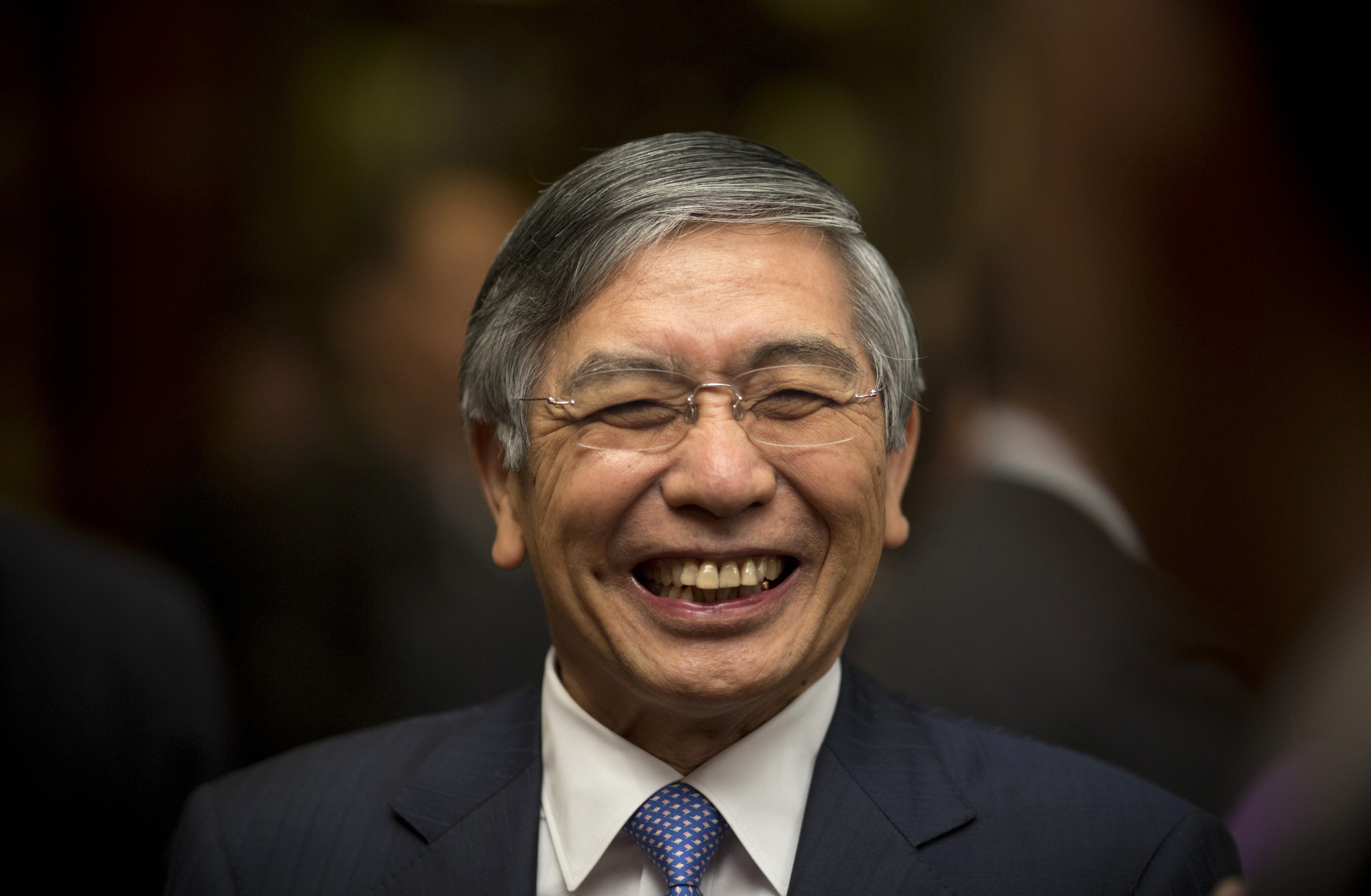Japan is the graveyard of economic theories. The country has had ultra-low interest rates and run huge government deficits for decades, with no sign of the inflation that many economists assume would be the natural result. Now, after years of trying almost every trick in the book to reflate the economy, the Bank of Japan is finally bowing to the inevitable. The BOJ's "dot plot" shows that almost none of the central bank's nine Policy Board members believe that the country will reach its 2 percent inflation target.
Accordingly, the bank has pushed back the date at which it expects to hit its 2 percent target. That's a little comical, since by now it should be fairly obvious that the date will only get pushed back again and again. If some outside force intervenes to raise inflation to 2 percent, the BOJ will declare that it hit the target, but it's pretty clear it has absolutely no idea how to engineer a deliberate rise in inflation. The bank will probably keep interest rates at zero indefinitely, but if decades of that policy haven't produced any inflation, what reason is there to think that decades more will do the trick?
Some economists think more fiscal deficits could help raise inflation. That's consistent with a theory called the "fiscal theory of the price level," or FTPL. But a quick look at Japan's recent history should make us skeptical of that theory — even as government debt has steadily climbed, inflation has stumbled along at close to zero percent.


















With your current subscription plan you can comment on stories. However, before writing your first comment, please create a display name in the Profile section of your subscriber account page.